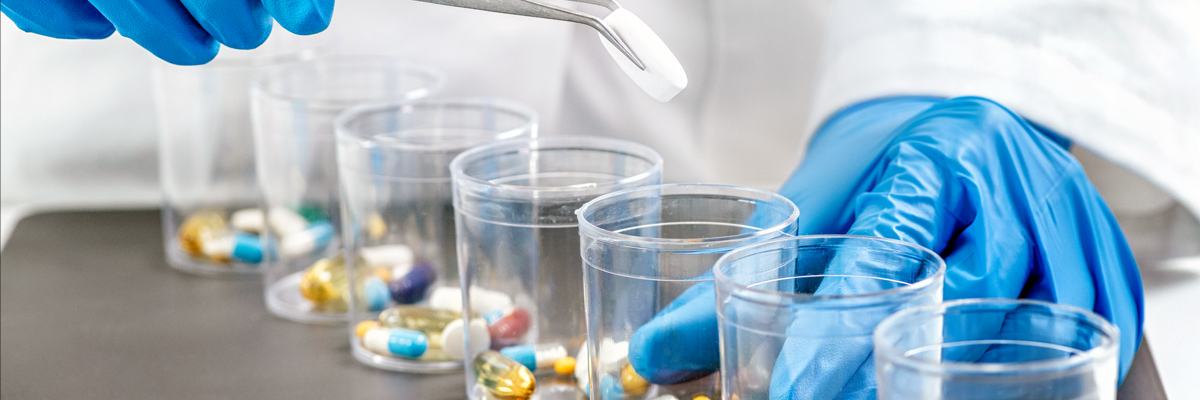What is Pharmaceutical Formulation Development?
Introduction
Pharmaceutical formulation development is a critical process in drug development, aiming to transform active pharmaceutical ingredients (APIs) into safe, effective, and patient-friendly drug products. This involves designing and optimizing the composition of a drug product to ensure its stability, efficacy, and patient acceptability.
What Does Pharmaceutical Formulation Development Involve?
Pharmaceutical formulation development involves designing and optimizing the composition of a drug product to ensure its stability, efficacy, and patient acceptability. This includes selecting appropriate excipients, determining the best dosage form, and ensuring that the final product meets regulatory standards.
What are the Objectives of Formulation Development?
- Efficacy: Ensuring that the drug delivers the desired therapeutic effect at the intended site of action.
- Stability: Maintaining the chemical and physical stability of the drug throughout its shelf life.
- Safety: Ensuring that the drug is safe for consumption, with minimal side effects.
- Patient Compliance: Designing formulations that are easy to use and acceptable to patients, enhancing adherence to the treatment regimen.
What is the Formulation Development Process?
Preformulation Studies
- Physicochemical Characterization: Analyzing the physical and chemical properties of the API, such as solubility, pH, and stability.
- Compatibility Studies: Assessing the compatibility of the API with various excipients to identify suitable formulation components.
Formulation Design
- Excipient Selection: Choosing appropriate excipients that will enhance the drug’s stability, bioavailability, and patient acceptability.
- Dosage Form Selection: Deciding on the most suitable dosage form (e.g., tablets, capsules, injectables) based on the drug’s properties and therapeutic objectives.
Formulation Optimization
- Experimental Design: Using techniques such as Design of Experiments (DoE) to systematically vary formulation parameters and optimize the formulation process.
- Pilot Scale Production: Producing small batches of the formulation to evaluate its manufacturability and performance.
Stability Testing
- Accelerated Stability Testing: Subjecting the formulation to elevated temperatures and humidity to predict its shelf life.
- Long-Term Stability Testing: Monitoring the formulation under recommended storage conditions to ensure long-term stability.
Scale-Up and Technology Transfer
- Process Scale-Up: Transitioning from pilot-scale to commercial-scale production, ensuring that the formulation remains consistent and reproducible.
- Technology Transfer: Transferring the formulation and manufacturing process to production facilities, along with comprehensive documentation and training.
What are the Emerging Trends in Formulation Development?
- Advanced Drug Delivery Systems: Development of novel drug delivery systems such as nanoparticles, liposomes, and hydrogels to improve drug targeting and release profiles.
- Personalized Medicine: Tailoring formulations to individual patient needs based on genetic, environmental, and lifestyle factors, enhancing therapeutic outcomes.
- Green Chemistry: Incorporating green chemistry principles to develop environmentally friendly and sustainable formulations.
- Smart Formulations: The integration of smart materials and technologies, including artificial intelligence (AI) and machine learning (ML), is creating formulations that can respond dynamically to physiological conditions. These technologies enable controlled and sustained drug release, optimizing therapeutic effects and improving patient compliance by predicting and adjusting to individual needs.
What are the Challenges in Drug Formulation Development?
- Complex API Properties: Handling APIs with poor solubility, stability, or bioavailability requires innovative formulation approaches to ensure effective drug delivery
- Regulatory Compliance: Ensuring that formulations meet stringent regulatory requirements for safety, efficacy, and quality is critical. This involves thorough testing and documentation to comply with international standards.
- Cost and Time Constraints: Balancing the need for thorough formulation development with the pressures of reducing development costs and time to market. Efficient processes and strategic planning are essential to meet these demands.
- Environmental and Sustainability Concerns: There is increasing pressure to develop formulations that are environmentally friendly and sustainable. This includes reducing the use of hazardous materials, minimizing waste, and adopting greener manufacturing processes to lessen the environmental impact of pharmaceutical products.
How Does Formulation Development Enhance Drug Products?
- Improved Bioavailability: Formulation strategies can enhance the solubility and absorption of poorly soluble drugs, increasing their bioavailability and ensuring the drug reaches its intended site of action effectively.
- Enhanced Stability: Optimized formulations protect the API from degradation, ensuring consistent therapeutic efficacy and prolonging the product’s shelf life.
- Minimized side effects due to Targeted Drug Delivery: Targeted formulations can deliver drugs directly to specific sites within the body, reducing systemic exposure and minimizing side effects, which enhances patient safety and comfort.
- Better Patient Compliance: User-friendly formulations, such as orally disintegrating tablets or transdermal patches, improve patient compliance by making drug administration easier and more convenient encouraging adherence to treatment regimens..
Conclusion
Pharmaceutical formulation development is a complex and dynamic process that plays a vital role in the success of drug products. By focusing on optimizing drug efficacy, stability, and patient compliance, formulation scientists can create innovative and effective treatments. As emerging trends and technologies continue to evolve, the field of formulation development will keep advancing, offering new opportunities to enhance drug therapy.

